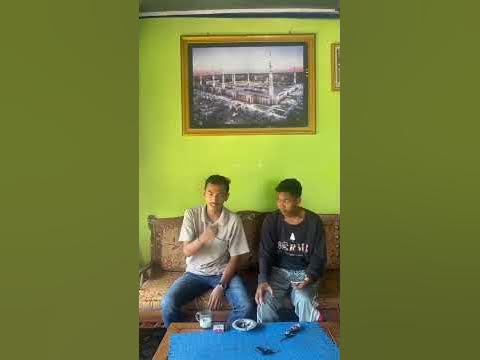Margaret Atwood's Top 5 Writing Tips
Summary
TLDRThe transcript features an insightful conversation with a writer, who reflects on their early decision to pursue writing at sixteen, overcoming initial doubt. The discussion covers the process of creating novels, the balance between inspiration and hard work, and advice for young aspiring writers, emphasizing reading, writing practice, and perseverance. The writer shares thoughts on dystopian literature, particularly 'The Handmaid's Tale,' and its relevance today. The conversation also touches on the adaptation of their work for television, noting the collaborative nature of production and the attention to detail involved.
Takeaways
- 🖋️ The author decided to become a writer at the age of sixteen, despite initially showing no particular talent for it.
- 📚 Writing was not seen as a viable career path in 1956 Canada, as there were no creative writing classes, only essay writing.
- 🧠 The author switched from a science career to writing because it was more enjoyable, despite others thinking the decision was odd.
- 📝 The author avoids choosing a favorite book because each one represents a significant investment of time and effort.
- 💡 Creating in-depth plots is 10% inspiration and 90% hard work. Ideas evolve during the writing process, sometimes taking years to fully develop.
- 🗑️ A waste paper basket is a writer’s best friend for discarding ideas that don’t work, with the possibility of saving them for later.
- 📖 Emotionally draining scenes are essential to keep readers engaged, helping them imagine how they would react in similar situations.
- ✏️ Writing is inherently hopeful, as it assumes a future reader will engage with the text.
- 📓 The author’s top tip for young writers: get a notebook, read critically, pay attention to posture, and don’t fear throwing away drafts.
- 🎥 While the author is involved in *The Handmaid’s Tale* TV series, creative control rests with a large team, reflecting the collaborative nature of TV production.
Q & A
When did the speaker decide to become a writer?
-The speaker decided to become a writer at the age of sixteen.
What was the reason behind the speaker’s career switch from science to writing?
-The speaker found writing to be more fun and enjoyable than science, prompting the career switch despite others thinking it was a mad decision.
Why does the speaker refuse to choose a favorite book they’ve written?
-The speaker believes that if they choose one book as a favorite, the others would feel neglected, as they invested significant time and effort in all of them.
How does the speaker create complex storylines and plots?
-The speaker emphasizes that creating storylines is a mix of 10% inspiration and 90% hard work, often reworking ideas that don’t pan out as expected.
Why are emotionally draining scenes important in stories, according to the speaker?
-Emotionally draining scenes engage readers by making them question how they would deal with the situation, connecting them deeply with the characters and the story.
How does the speaker feel about young writers studying their work, like 'The Handmaid's Tale'?
-The speaker is hopeful and sees young writers as crucial for continuing the tradition of reading and writing. They express optimism about the future of literature.
What advice does the speaker give for overcoming writer’s block?
-The speaker suggests going for a walk or sleeping on the problem, as both can help clear the mind and allow new ideas to emerge.
How does the speaker view the act of writing in terms of optimism?
-The speaker views writing as an inherently optimistic act, as it assumes a future reader and involves the hope that the work will be finished, published, and read.
What tips does the speaker offer to young aspiring writers?
-The speaker offers five tips: 1) Keep a notebook for ideas, 2) Read critically, 3) Maintain good posture, 4) Walk or sleep when blocked, and 5) Don’t be afraid to throw out ideas.
What role does the speaker have in the Hulu adaptation of 'The Handmaid's Tale'?
-The speaker has some input but no final control over the show. The scripts are developed by a team led by Bruce Miller, and the speaker communicates closely with him.
Outlines

Dieser Bereich ist nur für Premium-Benutzer verfügbar. Bitte führen Sie ein Upgrade durch, um auf diesen Abschnitt zuzugreifen.
Upgrade durchführenMindmap

Dieser Bereich ist nur für Premium-Benutzer verfügbar. Bitte führen Sie ein Upgrade durch, um auf diesen Abschnitt zuzugreifen.
Upgrade durchführenKeywords

Dieser Bereich ist nur für Premium-Benutzer verfügbar. Bitte führen Sie ein Upgrade durch, um auf diesen Abschnitt zuzugreifen.
Upgrade durchführenHighlights

Dieser Bereich ist nur für Premium-Benutzer verfügbar. Bitte führen Sie ein Upgrade durch, um auf diesen Abschnitt zuzugreifen.
Upgrade durchführenTranscripts

Dieser Bereich ist nur für Premium-Benutzer verfügbar. Bitte führen Sie ein Upgrade durch, um auf diesen Abschnitt zuzugreifen.
Upgrade durchführen5.0 / 5 (0 votes)






